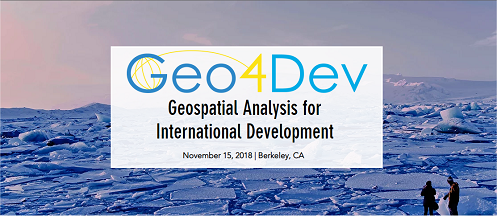PhD candidate Bo Andrée is working on an ambitious high profile project at the World Bank: the Famine Action Mechanism (FAM). This project seeks to monitor and detect early signs of famine risk and link forecasts to prearranged and agreed financing and intervention plans to respond earlier and consistently to extreme food insecurity situations. Key to the initiative is to model famine risk using highly detailed and near real-time satellite imagery and innovative machine learning techniques. The World Bank group has partnered with Microsoft, Amazon and Google to build that model.
Bo is the Artificial Intelligence modeler at the world bank’s side leading the technical development and specifying its architecture that combines many different model components. Dieter Wang, also from Tinbergen, was also recruited by the World Bank to work on time-series analysis. The project was launched at the yearly UN-summit on September 23, 2018. A 1.5 hour live stream of the UN Secretary General, World Bank president, heads of UN agencies and vice presidents of Microsoft and Google talking about the broad initiative is available here. The Washington Post reported on the initiative that same day.
Last week Bo presented the outline of the project at the second Annual Symposium on Geospatial Analysis for International Development in Berkeley, California. This symposium focused on geospatial research that addresses climate- and conflict-driven migration and humanitarian response.

